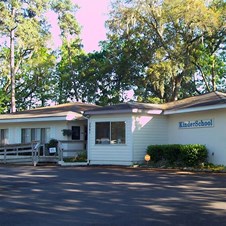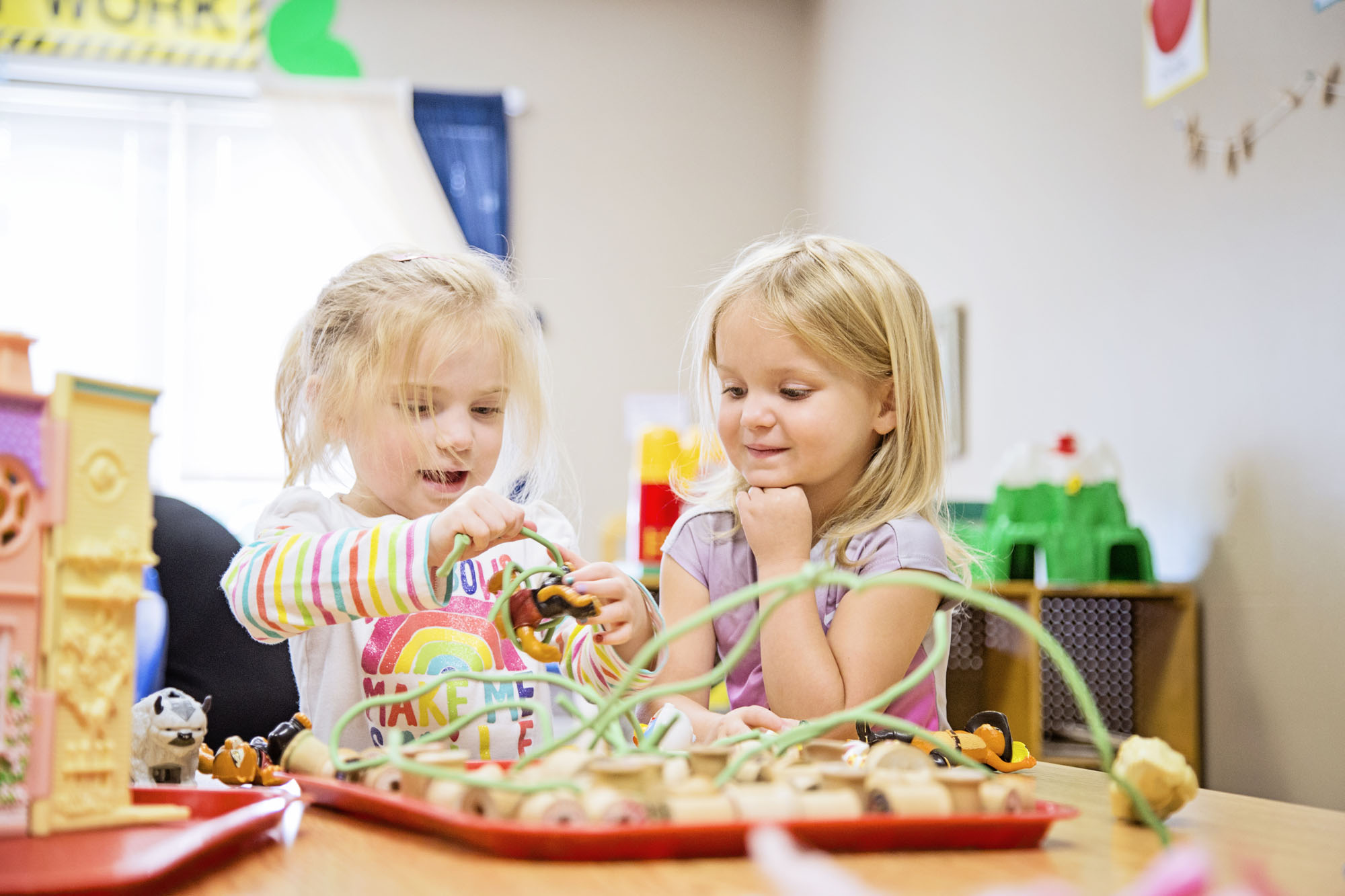How Private School educators use technology to modernize learning
Wiki Article
All About Quality School: Important Truths and Enriching Experiences for Youthful Learners
Quality college plays a crucial function in shaping young learners' futures. It incorporates essential scholastic topics and supports social skills via structured communications. In addition, extracurricular tasks provide possibilities for imagination and team effort. Parental participation additionally improves this foundation, supporting youngsters in their scholastic trips. As these aspects link, they create a complete academic experience. However, what particular strategies can teachers and moms and dads employ to optimize this advancement?
Recognizing the Quality School Educational Program
As trainees start their quality school journey, they come across an educational program developed to construct fundamental abilities and expertise across various subjects. This curriculum typically encompasses core locations such as maths, language arts, science, and social studies. Each subject is structured to grow essential thinking, creativity, and analytic abilities, essential for future scholastic success.Language arts concentrate on analysis, writing, and interaction skills, cultivating students' capacity to share themselves clearly. Math presents standard ideas, including addition, subtraction, and later, reproduction and department, laying the groundwork for more complicated analytical. Scientific research encourages inquiry and exploration, sparking inquisitiveness about the environment, while social researches instills an understanding of neighborhood and social variety.
In addition to core subjects, the educational program often includes arts and athletics, providing a well-rounded educational experience that advertises both physical and intellectual development. Subsequently, elementary school acts as an essential system for lifelong understanding.

The Structure of Quality Institution Education
While quality school education differs by region and institution, it typically follows an organized framework that promotes dynamic learning. Normally, elementary school encompasses a series of grades, often from kindergarten via sixth or fifth quality, depending upon the educational system. Each quality degree represents certain developmental landmarks, with curricula created to build on prior knowledge.Classes are typically organized right into core subjects, including maths, language arts, scientific research, and social researches, ensuring that pupils obtain a versatile education. Instruction usually incorporates direct training with hands-on activities, promoting interaction and important thinking.

Evaluation approaches differ but typically consist of tasks, examinations, and quizzes to examine student understanding. Furthermore, educators often work together to produce interdisciplinary systems, enhancing the learning experience. In general, the structure of elementary school education aims to cultivate fundamental skills, prepare pupils for future academic obstacles, and advertise a love for discovering that prolongs past the class.
Social Skills Development in Early Learners
Grade college education not only concentrates on academic skills but also plays a significant duty in the development of social skills among very early students. Throughout these developmental years, kids participate in various tasks that urge interaction, collaboration, and interaction with peers. Team jobs and participating knowing settings give possibilities for kids to exercise sharing, negotiating, and settling conflicts.Furthermore, structured play fosters necessary skills like empathy and understanding, as youngsters discover to identify and react to the feelings of others. Through directed social communications, educators aid trainees develop important listening and conversational abilities. As children navigate relationships and team characteristics, they obtain confidence in their social capacities.
The Duty of Extracurricular Activities
After-school activities play a significant duty in boosting the educational experience of grade institution students by offering avenues for personal development beyond the class. These tasks permit pupils to explore abilities and rate of interests, cultivating imagination and self-expression. Engagement in sports, songs, art, and clubs grows team effort, leadership skills, and a feeling of belonging.Additionally, taking part in such tasks promotes physical health and wellness, motivating trainees to maintain an active lifestyle. Kindergarten. Extracurricular programs additionally serve as a system for students to build friendships and develop social skills, which are necessary for their overall advancement
As pupils browse their rate of interests outside of academics, they get valuable experiences that contribute to their self-esteem and resilience. Eventually, these activities play a crucial function fit all-round people, preparing them for future challenges both in and out of the classroom.
Supporting Discovering Via Adult Involvement
Adult involvement substantially boosts the academic trip of elementary school students, as it cultivates a supportive atmosphere that reinforces discovering. Involved moms and dads add to their kids's academic success by going to college events, assisting with research, and keeping open interaction with teachers. Private School. This participation not only boosts pupils' inspiration yet additionally cultivates a sense of belonging and self-confidenceStudy shows that children whose moms and dads are actively involved often tend to have higher qualities, better presence, and improved actions her explanation in institution. Additionally, adult engagement encourages the growth of crucial life skills, such as time monitoring and responsibility.
Schools can facilitate this involvement by holding workshops, supplying resources, and encouraging regular comments. By developing partnerships in between teachers and moms and dads, elementary school can assure an extensive method to trainee advancement. Inevitably, adult participation works as a keystone for cultivating a positive educational experience, profiting both students and the college neighborhood all at once.
Often Asked Questions
What Are the Normal Grade Institution Hours for Students?
Common quality institution hours for trainees normally range from 8:00 AM to 3:00 PM, varying by area. Several colleges integrate a lunch break and recess, making certain students have time to reenergize throughout the day.Just How Do Quality Schools Address Diverse Knowing Demands?
Elementary school attend to varied finding out requirements through distinguished instruction, tailored lesson strategies, and click here for more support solutions, making certain all pupils receive appropriate resources. Educators work together with professionals to create comprehensive settings that foster private growth and interaction.What Is the Role of Modern Technology in Grade School Education?
Innovation in grade college education and learning boosts discovering through interactive tools, personalized finding out experiences, and access to substantial resources. It fosters collaboration among trainees and instructors, preparing children for a technology-driven future while supporting varied academic requirements.Exactly How Can Moms And Dads Aid With Homework Successfully?
Moms and dads can aid with homework efficiently by developing an organized setting, encouraging independence, offering sources, and offering assistance without directly providing answers. Communication with educators also improves understanding of assumptions and promotes scholastic success.What Prevail Difficulties Encountered by Grade Institution Trainees?
Typical obstacles dealt with by quality college students include trouble with time monitoring, comprehending intricate ideas, preserving focus throughout lessons, steering social dynamics, and stabilizing academic obligations with after-school activities, every one of which can impact their general efficiency.As pupils commence their grade college journey, they encounter a curriculum created to develop foundational abilities and expertise throughout numerous subjects. Usually, grade school encompasses a variety of grades, often from kindergarten via sixth or fifth grade, depending on the educational system. Extracurricular tasks play a considerable duty in improving the educational experience of quality school pupils by providing opportunities for personal development beyond the classroom. Adult involvement significantly enhances the educational journey of grade institution pupils, as it fosters important link a supportive atmosphere that reinforces learning. By developing collaborations in between educators and moms and dads, grade schools can assure a comprehensive approach to trainee development.
Report this wiki page